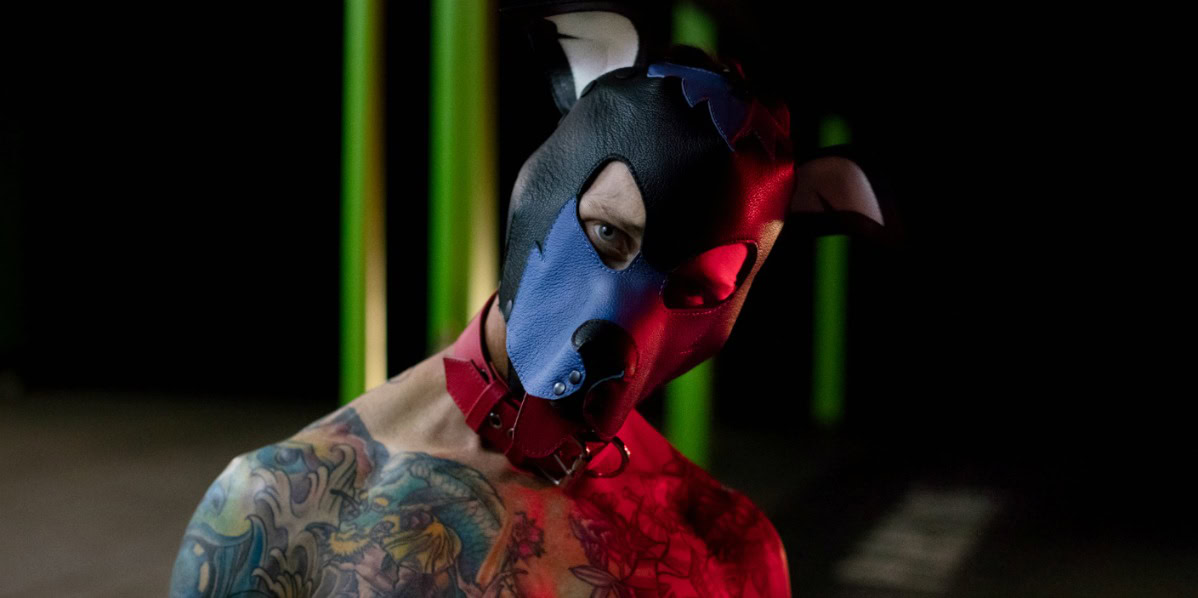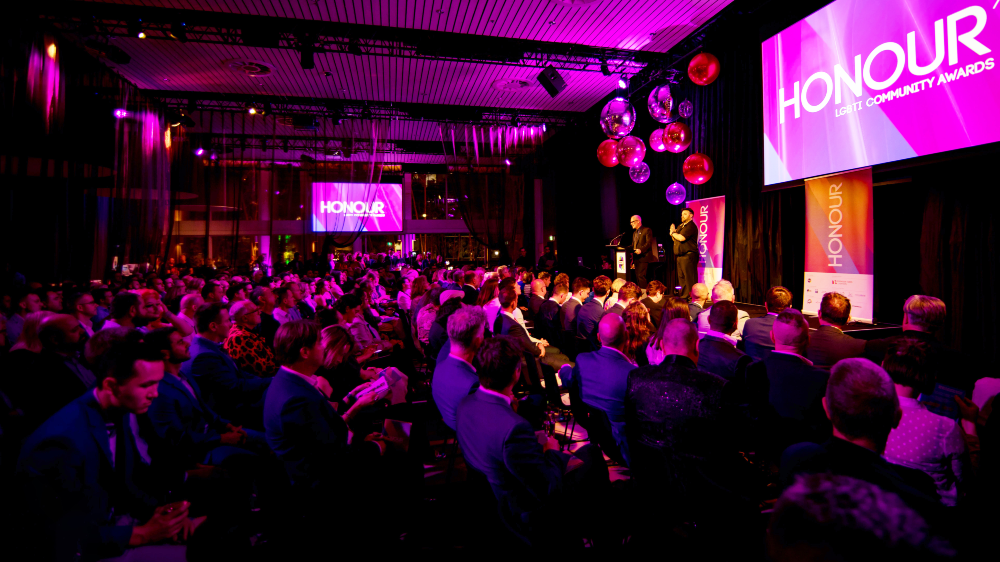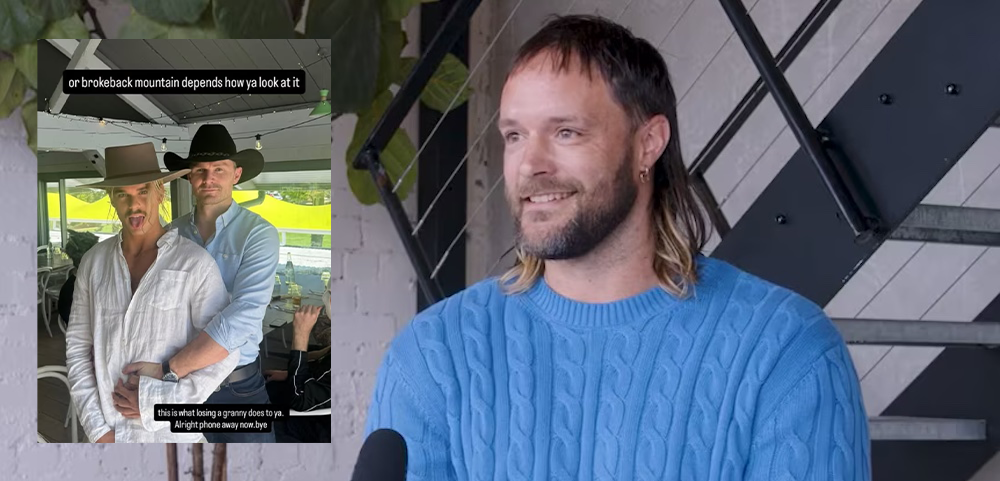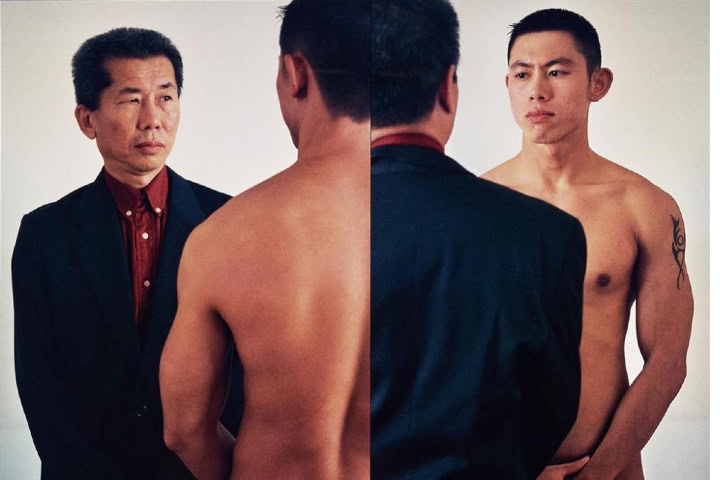
‘Puppy play’ and mental health in the queer community

THE core rule of puppy play is that there are no rules.
Consent must be omnipresent however one’s sexuality, gender, or proclivities in the bedroom have no bearing on how one chooses to adopt a pup persona and engage in the subculture.
Despite its growing prevalence in queer communities around the world, puppy play is still shrouded in misconception and stigma.
Some deride it as akin to bestiality, others regard it with a mild ‘sex panic’ that would sit comfortably in the 1950s, and many have never heard of it.
But for those who don fake dog ears, knee pads, and a tail, puppy play is not only an entirely safe and consensual form of self-expression – it also alleviates existing mental health issues such as stress, anxiety, and depression.
When Melbourne-based Taylor Cook first heard about puppy play from a friend he approached it with trepidation. His first experience was a tentative one, and it was solitary.
“Even by myself I was too shy to bark and howl for a while, but I finally started doing it and now I can’t stop,” he said.
“That first time I found it quite cathartic – you know that feeling of freedom when you see a wolf howling at the moon? It can be 100 times more freeing when you’re doing it yourself.
“I’ve had times I’ve been absolutely crook with a chest infection and I’m there growling and howling in my bedroom and even though it’s not a painkiller it made me feel better.”
One could list all the titles and kinds of ‘pups’ out there ad nauseum and it still mightn’t scratch the surface, so to speak.
It falls under the broad umbrella of BDSM and often sees a person take on the role of a puppy for a period of time. The experience can be solo, social, or sexual, but it’s only limited by the desire of the person engaging in it.
Some pups even have ‘handlers’ who act as a person would with a biological dog or ‘bio-pup’.
However, unlike the more traditional dominant and submissive or daddy and son role play, puppy play leaves more room for spontaneity with those engaging in it getting into the mindset of a pup and only thinking about a split second ahead, if at all.
Cook, who identifies as an Icelandic Sheepdog and goes by the name Tycho when ‘pupping out’ said a common misconception about the subculture is that it’s all about sex.
In fact, he believes the majority of those who engage in puppy play do so for social reasons rather than sexual.
He often helps to co-ordinate and be part of ‘Mosh’ events, which involve heading to the park or an empty warehouse for a few hours with 20 – 30 people to engage in social puppy play, allowing the attendees to be in a safe and uninhibited space.
The events are run by the Victorian Pups and Handlers (VIC-PAH).
“For the majority of pups it’s purely social – the focus is on the headspace,” he said.
“It’s about the ability to somehow box up all your stress and worries for the day and put it to the side and be in the moment.
“At a Mosh we’re in an empty warehouse with foam mattresses, squeaky toys, and a bunch of sofas. People come sit down and watch or chat to other pups and handlers, or get down on all fours and pup out.”
Cook added that when pups get together, human identity markers often become unimportant.
“The greatest thing about being a pup is that when you’re a pup, you’re a pup,” he said.
“You’re not a woman, a guy, not gay, or straight. I’m sure there are pups that exhibit those personalities but if I’m on the Mosh floor pupping out and a woman comes up to me, I’m going to treat her the same as a gay pup.”
Cook runs with his own pack of pups, one of many in VIC-PAH. He’s the leader or ‘alpha’ pup, and his pack consists of himself, two ‘beta’ pups, and an ‘omega’ pup, considered the most submissive of the group.
While puppy play is largely social and can provide a welcome release from the day’s stresses or anxieties, Cook said it has also helped many people with existing mental health issues.
And for members of the LGBTI community who are at a disproportionate risk of depression, anxiety, and suicidal thoughts, this is particularly salient.
“Mental health wise it’s helped me immensely,” he said.
“From when I was homeless and suffering post-traumatic stress and depression, along with anxiety disorders – I find that if I don’t pup out over long periods of time that will stress me out.
“I can have a day or evening of pupping out by myself or with others and I feel that much calmer.
“There’s quite a common theme that people with a high-stress job that pup out find themselves super relaxed and chill.”
Queensland-based Benjamin Bullivant has two pup personas: Pup Scout and Pup Spanky.
The former is a purely social persona, one that allows him to get into the headspace of a pup, while the latter is open to both socialising and sex.
“Headspace pups only have the headspace of a pup, while there are those that are very sexual but that’s not just penetration – it could also be bondage or discipline,” he said.
“It depends on the situation. In public situations in headspace mode you might be interacting with the crowd where I’m with my handler, but if I’m wearing leather it might be my sexual side which is more fluid.
“I identify as a leather pup so I wear leather, but you have other pups out there who might not wear any gear. It depends on people’s personas.”
As a result of the misinformation or preconceived ideas around puppy play, those in the community both here and abroad face regular stigma.
Bullivant said since first engaging in the subculture five to six years ago he encountered discrimination, something that has persisted even now.
“Quite regularly even now, some people can be quite rude about it, where others are more curious and inquisitive and don’t even realise they could be saying things that are offensive,” he said.
“But there are also people that see it as bestiality or something and that can be downright rude and discriminatory.
“Instead of judging something first, you should think to yourself: your kink mightn’t be my kink, and that doesn’t matter.”
He added that times have changed substantially.
“There’s a lot less stigma than when I first entered puppy play because a lot of people said it had to do with bestiality when it has nothing to do with that,” he said.
“It’s quite a release, it’s almost like a meditational release, and it’s very relaxing.
“It’s about being amongst your own company and other’s company, so there’s stigma there, but there’s still stigma for a lot of different fetishes.”
Cook reflected similar sentiments, highlighting the main problem with people equating puppy play with bestiality.
“If you try to approach someone in our community thinking they want to get fucked by a dog, they’re probably going to throw up,” he said.
“You also have those that have heard about it in the past that believe it’s all about domination, submission, and humiliation, which was only true up until about 20 years ago when the community started shifting.
“The past two Pride marches in Melbourne have seen parents bring their small kids up to us so they could pat us – responses like that show it can be purely social.”
While the spectrum of puppy play is as vast as it is diverse, Cook said at the end of the day it’s about giving people an outlet to forget any troubles they may be facing.
“It’s a way for people to express part of the personality they have that they don’t normally have the opportunity to express,” he said.
“When I’m on the floor I can parcel up my anxiety and depression and leave it to the side, giving my heart and brain a break.”








